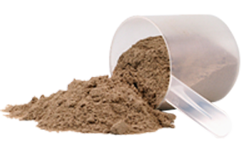
Ellagic Acid Supplements
Professional grade 500mg
Ellagic acid caplets from meeker red raspberry seed concentrate
Anti-cancer research suggests that red raspberries may have cancer protective properties. The biggest contribution to raspberries' antioxidant activity is the ellagitannins, derived from ellagic acid, a compound almost exclusive to the raspberry.
Also red raspberry extract in 100% pure POWDER!
Why is Elagic Acid Important? Read more about this micronutrient substance and the benefits of Ellagitannins - Metabolic pathways
Ellagic Acid.pdf - 31-page free booklet download
Red Raspberry Extract
Ellagic Acid benefits from Red Raspberry, the best!
The Meeker red raspberry is the best source of Ellagic acid in our anti cancer supplements.
Ellagic.net use exclusively the Meeker Red Raspberry seed flour to manufacture 100% pure Ellagic Acid Advanced Formula.
Professional Grade Product
Good-Manufacturing-Practices
Certified by the NNFA
(National Nutritional Food Association)Quality control technicians carefully assess all raw ingredients, compounds, flours and capsules for compliance to specs. through HPLC and lab-based controlled practices. The in-laboratory quality assurance program is continually monitored by our audit team.
Our Advanced Formula of ellagic acid is exactly the same Meeker red-raspberry seed concentrate extract tested during the clinical studies.

Beta Glucan MAX - Those who have week immunity from any origin, chronic fatigue, or deep seated conditions, can be administered Beta Glucan to help reinforcing their immuno-defences. The body does not make beta glucan naturally, the only way to get this compound is through nutritional sources. Read more...
Copyrights Millennium©Heath LLc. All rights reserved
FDA disclaimer | Resources | site map
The American Cancer Society:
In a published report states that ellagic acid may slow the growth of some cell abnormalities. This is promising, at this time, there is a lot of ongoing research to find evidence from human clinical studies showing that ellagic acid in any form can prevent or treat cancer. Further research is needed to determine what specific benefits ellagic acid may have.Ellagic Acid in red raspberries are high in Phytonutrients for antioxidant, Antimicrobial and Anticarcinogenic Protection.
Ellagic acid in the red raspberry (rubus Idaeus) fruit contains bioactive polyphenols including anthocyanins and ellagitannins that exhibit anti-inflammatory properties. Ellagic acid, a phenolic compound, is present in plants in the form of complexes called ellagitannins. When these complexes are digested they yield ellagic acid. Ellagic acid exhibits significant anticancer activity.
The crucial substances are quercetin, kaempferol, and the cyanidin-based particle known as cyanidin-3-glucosylrutinoside and cyanidin-3-rutinoside. The flavonoid molecules are classified as anthocyanins, belonging to the group of compounds giving red-raspberries their intense red pigment.
Ellagic acid raspberries anthocyanins give these delicious red-berries particular antioxidant properties, together with some antimicrobial power, including the capacity to counter overdevelopment of some bacteria and fungi in the body (i.e. the yeast Candida albicans, which often is a factor in vaginal infections and could be a conferring cause in irritable bowel syndrome).
Medical references - Dr Nixon research
Medical references - on cell cycle
Why is this supplement important?
Illustrated schema - interaction ponts
Cancer: What is it?
Cancer prevention diet and nutrition
The great ellagic acid fraud!
Red raspberries health benefits
Product availability
Beta Glucan - what is it?



